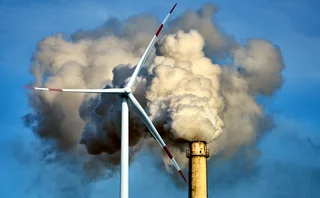US policy can't save coal, but it can still have an impact
The new US power plan won't save a struggling industry, but that doesn't mean it won't make a difference for the worse

This month the future of coal – in the US, and by extension around the world – came under the spotlight again. Though US coal mining is now a shadow of its former self in employment terms – with just 50,000 coal miners compared with a 1923 peak of 883,000 – its output is still not far off its 2008 record high of 1.2 billion short tons, and, crucially, it still retains powerful totemic significance in US politics.
The future of thermal coal in the US power market is a lot more uncertain than most people believe – both the climate hawks who are pushing for the closure of coal-fired generators across the country, and the coal lobby, which takes hope from various pro-coal statements coming from US president Donald Trump before and after his 2016 election.
Coal is expensive compared with natural gas, but that alone isn’t enough to doom it – especially given the choice between continuing to run an existing coal-fired generator and building a new gas-fired one. At current prices, especially in the coal-rich western US, coal still looks good in many cases.
But it’s also true that the efforts of the US administration to dig coal, while electorally productive, are likely to do little to reverse the industry’s decline. New coal-fired stations will be politically difficult even if judged to be economically preferable, and the lack of infrastructure makes salvation through exports improbable.
All that political effort can do for the US coal industry is to hasten or delay the inevitable; but that doesn’t mean political efforts are a waste of time. The health, economic and environmental implications of either will be significant.
All that political effort can do for the US coal industry is to hasten or delay the inevitable; but that doesn’t mean political efforts are a waste
Outside the US, of course, the equation changes dramatically; for many industrial countries, coal represents the only significant domestically-produced energy source, and may also be a significant source of employment and/or export revenue. Politics may be better able to overrule economics in these circumstances.
But even these countries are not irrevocably wedded to coal, with renewables in particular taking over much of coal’s territory; it may be relevant here that solar and wind power, of course, are just as domestically produced as coal, and better in this respect than imported liquefied natural gas. Inasmuch as the US still retains any position of global leadership, the policies it adopts towards coal will be watched and considered for emulation by other countries. While they may make little difference to the ultimate fate of the US coal industry, they could have significant effects elsewhere.
More on Energy transition
CRO interview: Brett Humphreys
Brett Humphreys is head of risk management at environmental markets specialist Karbone. He talks to Energy Risk about the challenges of modelling outcomes in unpredictable times and how he’s approaching the risks at the top of his risk register
High risk and volatility require new risk management approaches
Energy leaders warn fast-rising geopolitical, market and infrastructure risks demand new strategies, AI adoption and stronger risk culture
Uncertainty causes rethink on clean energy investment
Waning enthusiasm for net-zero pledges, environmental policy shifts, funding cuts and US tariffs are causing clean energy investors to retreat
Data and analytics firm of the year: LSEG Data & Analytics
Energy Risk Awards 2025: Firm’s vast datasets and unique analytics deliver actionable insights into energy transition trends
Sustainable fuels house of the year: Anew Climate
Energy Risk awards 2025: Environmental firm guides clients through regulatory flux
Corporates keep the faith on net-zero goal
Large corporates’ energy transition includes trading and risk management in energy and commodities markets
Environmental products house of the year: ENGIE
Renewable energy and the liberalisation of power markets in Apac present significant long-term growth opportunities, with ENGIE driving change in energy transition
ENGIE empowers clients globally to decarbonise and address the energy transition
In recent months, energy market participants have faced extreme volatility, soaring energy prices and supply disruptions following Russia’s 2022 invasion of Ukraine. At the same time, they have needed to identify and mitigate the longer-term risks of the…







